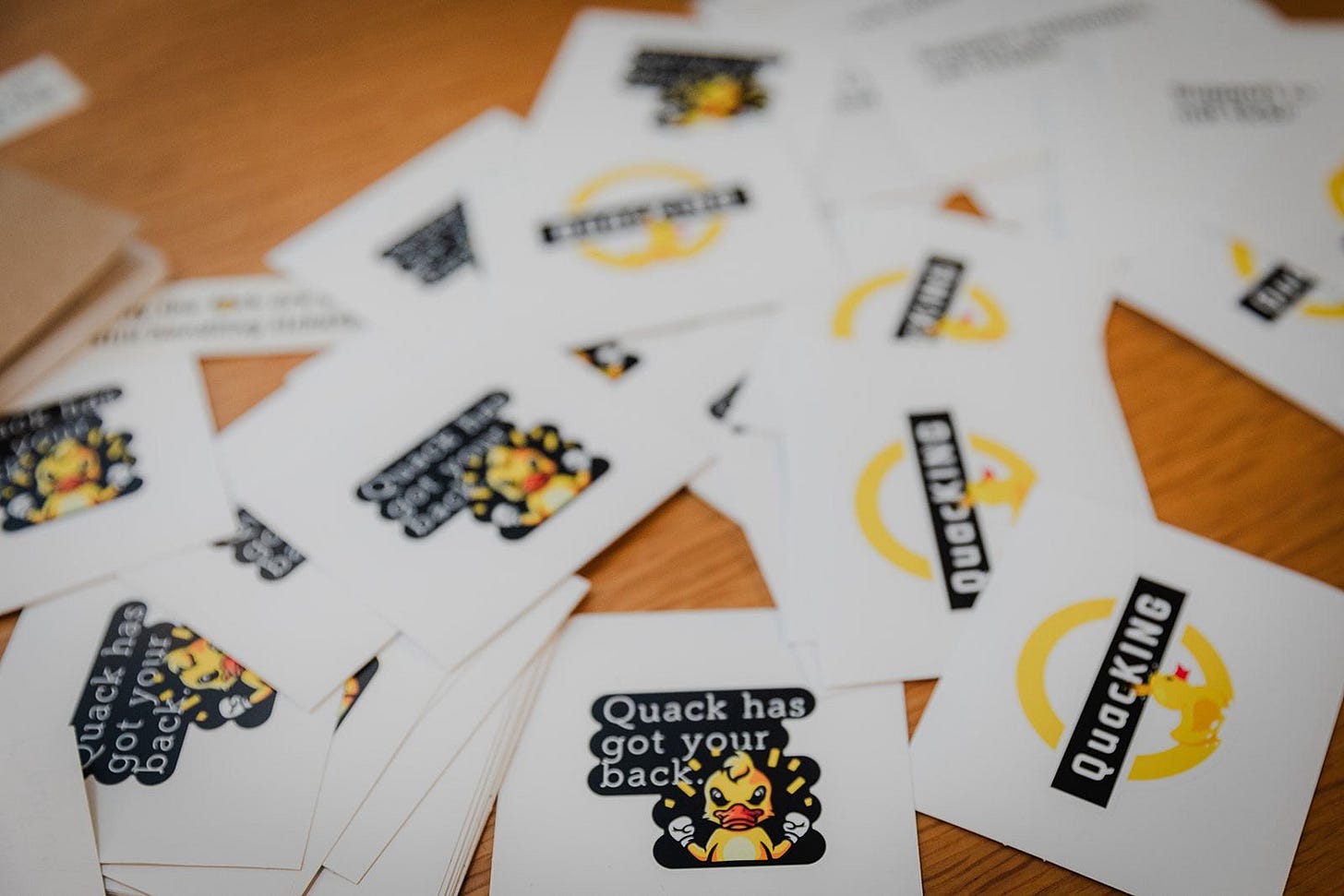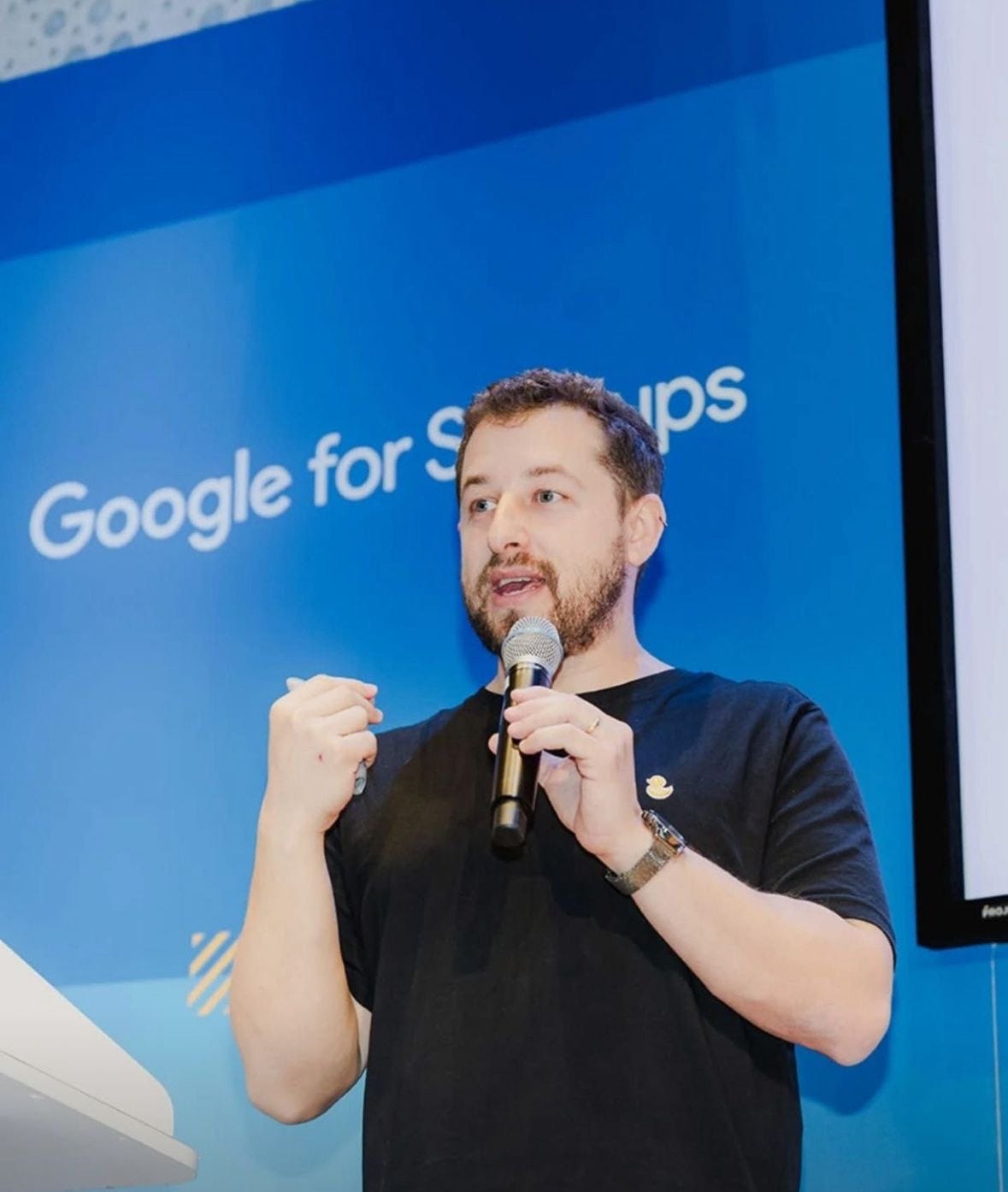Building for 2027: How to Stay Relevant in an AI World That’s Moving Too Fast
Quack’s CEO, Nadav Kemper, shares how staying relevant in AI isn’t about chasing trends—but about building with focus, partnering smartly, and knowing what not to build.
In 2025, building with AI isn’t optional, it’s the norm. Whether you're a founder, a product leader, or simply trying to stay competitive - AI is everywhere: writing content, qualifying leads, assisting customers, and quietly shaping product experiences behind the scenes. Tools are multiplying, new features drop weekly, and expectations are rising faster than most teams can keep up.
But beneath the hype lies an unsettling truth: what feels cutting-edge today might be irrelevant tomorrow. Generative AI stole the spotlight in 2023, Agentic AI is trending now, and something else will take its place. Because innovation never slows down. You can’t predict the next wave, but you can design with enough resilience to ride it.
And resilience starts by asking harder questions. What happens when the tool you just integrated becomes obsolete? When the workflow you spent months perfecting suddenly disappears? What will still matter two years from now - and are you building toward that?
Longevity isn’t a byproduct, it’s a strategy. And it demands a different mindset: not faster, but deeper. Not just better models, but better judgment about what truly matters.
Think Bigger, But Stay Grounded
As if the pace weren’t already brutal, early-stage founders today aren’t just chasing product-market fit, they’re racing against Big Tech companies. Google, Microsoft, Meta, Amazon - all pouring billions into AI, building fast, failing fast, and still coming out ahead.
The AI startup space has never been more crowded. Over 70,000 companies are operating globally, including 17,000 in the U.S. alone. Open-source tools keep lowering the barrier to entry, while Big Tech bakes AI into everything they touch. In this reality, speed alone won’t cut it. Startups need a strong point of view, and the conviction to stick with it.
Quack AI is betting on focus. Instead of chasing trends, they’re building for what will still matter two years from now: empowering customer-facing teams - support, success, ops - to scale smartly, without sacrificing depth or quality. Their platform transforms scattered CRM data into contextual, real-time guidance that helps human agents work faster, think sharper, and deliver more consistently.
It doesn’t replace people, it makes them better.
"We’re not here to build a pretty interface over a shallow solution", says co-founder and CEO Nadav Kemper. "We’re here to rethink how support should actually work". That philosophy shows in how they operate. The CEO joins support calls, the CTO handles tickets, they don’t just listen to customers - they sit in the trenches with them. It’s not glamorous, but it keeps the company grounded and the product relevant.
Because AI doesn’t replace domain expertise, it amplifies it. The best tools are built with the people who feel the friction every day. If you want to build something that still matters years from now, start with the ones feeling the pain today.
Yeah, You Can Build It - But Should You?
One of the most common frictions Quack hears in the market is one every AI founder will recognize: "We’ll just build it ourselves". And honestly? They’re not entirely wrong, at least not at first. With LLMs and open-source tools, spinning up a prototype has never been easier. But turning a cool demo into a production-ready system, one that integrates across teams, scales with the company, and delivers real ROI? That’s a different game entirely.
Nadav calls it The illusion of AI accessibility. "It’s like saying you can build your own satellite - technically true, but practically? It’s a trap". Many teams start by building in-house, only to realize (often painfully) that they lack the infrastructure, the context, or the volume of insights needed to build something truly robust. Quack doesn’t resist that instinct, they welcome it. “If a team wants to build part of the solution themselves - great”, says Nadav. “We’re not here to replace them. We’re here to partner with them”.
Lastly, his advice to fellow founders: don’t fight the instinct to build, respect it. Let teams explore, experiment, learn, and hit their own walls. Then be there, ready to help them go the last mile. “It’s like a restaurant, we’re not telling you what to cook - that’s your expertise. But we’ll bring the kitchen, the tools, the logistics - everything you don’t need to reinvent from scratch”.
Because in 2025, building is easy. But knowing what not to build, and when to partner instead, is what keeps you in the game in 2027.
About Qucak AI
Founded in 2023 by Nadav Kemper and Aviram Roisman, Quack AI helps customer support teams scale without compromise, keeping every single customer happy. Its platform enables deeper and more nuanced training than any other AI support solution, by surfacing insights that help improve the entire product experience, and empower CX & Support teams to drive significant business impact. Because amazing CX isn’t just about fixing what’s broken - it’s about owning the product’s “unhappy flows” and proactively turning painful moments into growth opportunities.
With over 40 paying customers and a lean team of 15 members, Quack is on track to double revenue by the end of 2025.





